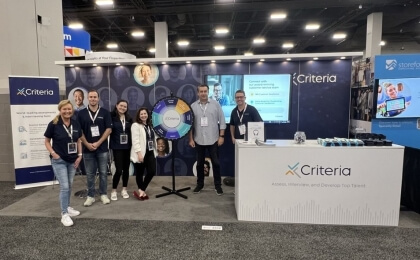How can you tell if your job applicants have what it takes to succeed in a particular position? There are so many factors that go into a hiring decision, and resumes can only tell you so much. Resumes are notoriously unreliable, with research suggesting that up to 78% of resumes contain misleading statements, while 46% contain actual lies. Similarly, your candidates’ work experience and educational background aren’t a guarantee that they possess critical thinking skills or problem solving ability, and these factors have been shown to be poor predictors of future job performance. Sometimes the best way to dig deeper into what your candidates can actually do is by testing their abilities.
When it comes to pre-employment tests, how do you decide which tests to choose or, more importantly, what abilities to test for in the first place? There are a lot of different types of tests, but most tests fall into one of two basic categories: general or specific.
General tests include cognitive aptitude tests and a lot of personality tests. At their core, general tests assess broad or innate abilities or characteristics that provide insight into a candidate’s potential for success. Alternatively, specific tests are, well, specific. They test specific skills that a candidate has picked up through education or work experience, such as typing speed or familiarity with Microsoft Excel.
In essence, the main difference between general and specific tests is that general tests measure potential, while specific tests measure acquired skills that candidates have already learned. It’s the classic dichotomy between aptitude and achievement.
As it turns out, general tests (cognitive aptitude tests in particular) are much better at predicting overall job success than specific skills tests. This is because general tests measure core abilities such as critical thinking, learning ability, and problem solving skills, all of which have an impact on how well an employee is able to adapt and thrive in a new position. One meta-analysis – or summation of numerous studies done in this field – even found that cognitive aptitude tests were 1.6 times more predictive than unstructured interviews and four times as predictive as job experience.
General personality tests also have a lot of predictive value, particularly when they measure conscientiousness. Conscientiousness is a trait that is consistently correlated with job success because it indicates how goal-oriented, self-disciplined, and dependable an individual will be.
In contrast, specific tests tend to be less predictive of long-term success. While a specific test of “microskills” – such as a test on a particular programming language or a test assessing data entry skills – can help you find out if your candidate already knows how to perform a certain task, research shows that they do not tend to be great predictors of overall performance in the long-term. A general skills test that measures broader job-readiness competencies is an exception to this rule, but microskills tests typically only assess one limited part of the role. They do not assess a person’s ability to learn new skills, or adapt and grow as an organization or job evolves. A general aptitude or personality test sheds light on that candidate’s long-term potential.
And because general tests measure broad abilities that are critical to success in many positions, they are predictive for a wide range of job roles. Both general and specific tests do have value when it comes to finding the right candidate, but using a more general test as your primary assessment, possibly in combination with a secondary skills test, is the best strategy for uncovering the candidates who are most likely to succeed.




